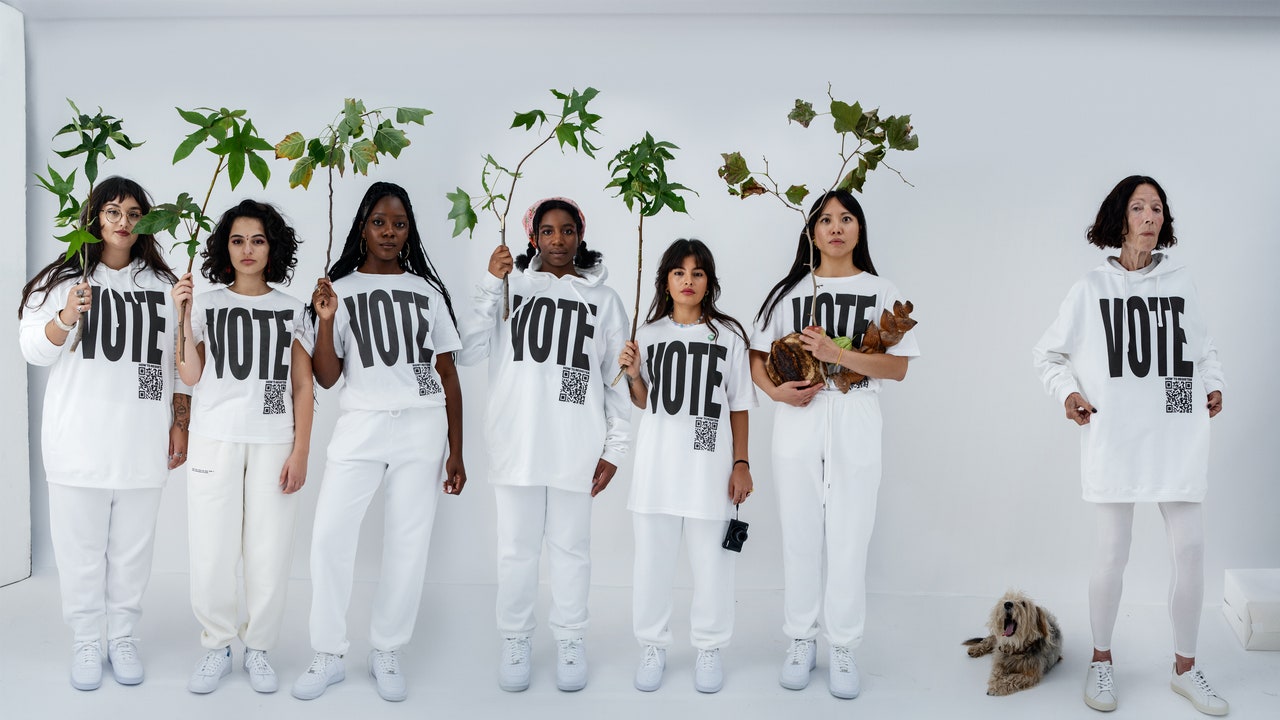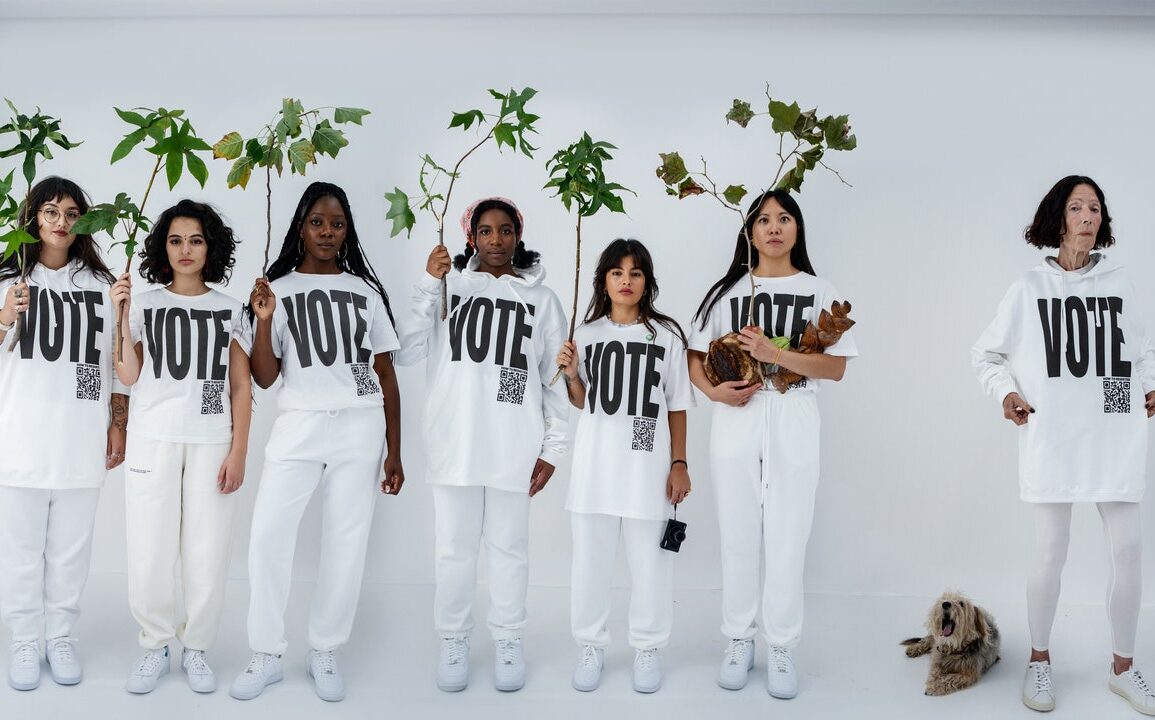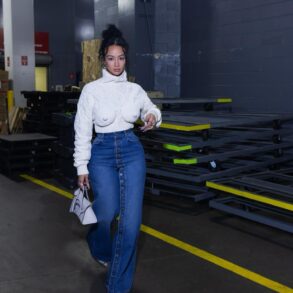
Her ability to cut through the noise, and communicate the messages that matter, is undoubtedly one of her greatest strengths. “Katharine represents the power of storytelling,” Catherine Chong, a climate economist and co-founder of Farms That Feed Us, a social enterprise supporting farmers, says. “Most people aren’t predisposed to reading scientific papers.”
Born in 1947, Hamnett was a “Cold War baby”, meaning that politics was inescapable growing up. The daughter of a diplomat, the designer lived all over Europe as a child, recalling how the family would have conversations with the taps running in the bathroom to avoid any potential surveillance that had been planted in their home.
While politics may be in her blood, Hamnett never considered it as a career. “I wanted to be an archaeologist really, or a film director,” she recalls. “But my parents said you need a private income to be an archaeologist, and there were no women film directors.” When Hamnett discovered a school friend was going to Saint Martin’s School of Art (now Central Saint Martins), she decided to follow suit. “All teenagers are interested in fashion; it’s like biological programming,” she jokes.
Hamnett launched her eponymous brand in 1979, quickly finding success with her utilitarian designs. “We were selling to some of the best stores in the world [in] 40 countries – clothes, not [just] slogan T-shirts,” she recalls.
It all changed for the designer a decade later though, when she commissioned a report on fashion’s environmental impact on the planet. “I thought there’d be nothing wrong, but of course absolutely everything was wrong: farmers dying because of pesticide poisoning; millions of people working in conditions in factories worse than slavery,” she says. In response, she adopted organic cotton – which was not widely available back then – as well as moving production back to Europe (today, her T-shirts are produced on the Isle of Wight).
Has enough progress been made since Hamnett first sounded the alarm? “There’s a huge sustainability industry now… the conferences, the Champagne. Everybody stands up and cheers at the end, and we carry on with business as usual,” she says wryly. “What we need is legislation.”
Sign up to the Vogue Daily newsletter
While change is slow, Hamnett has clearly left her mark on the fashion industry, and beyond. “Katharine recognised in the 1980s how disastrous the industry is, [and] started to change her practices, started to voice her opinions on what needed to change,” reflects Liv Simpliciano, policy and research manager at campaign group Fashion Revolution. “Those same issues she was talking about – a lack of sustainable materials, a lack of living wages for the people that make our clothes, forced labour, problems of waste – they all ring true today.”
The fact that Hamnett’s T-shirts can regularly be spotted on the streets of the UK, even today, is evidence enough of her lasting impact on the next generation. “It’s the epitome of wearing your values,” Joycelyn Longdon, founder of education platform Climate in Colour, says. “I think that we can all take inspiration from that.”
Hamnett is proudest of her “Choose Love” tee, which has raised £1.5 million to help refugees and displaced people around the world. “That’s the best T-shirt I ever did,” she asserts. “I saw someone on a bicycle this morning wearing a ‘Choose Love’ T-shirt. It makes me feel so good, because I think it’s a philosophical position that you should adopt to deal with anything.”
But despite all she’s achieved, Hamnett’s not one to rest on her laurels. Next on her bucket list? “If I could get Beyoncé or Rihanna wearing [my ‘Vote’ T-shirt], that would be amazing,” she smiles.
The December 2023 issue of British Vogue is on newsstands from Tuesday 21 November
This post was originally published on this site be sure to check out more of their content.







